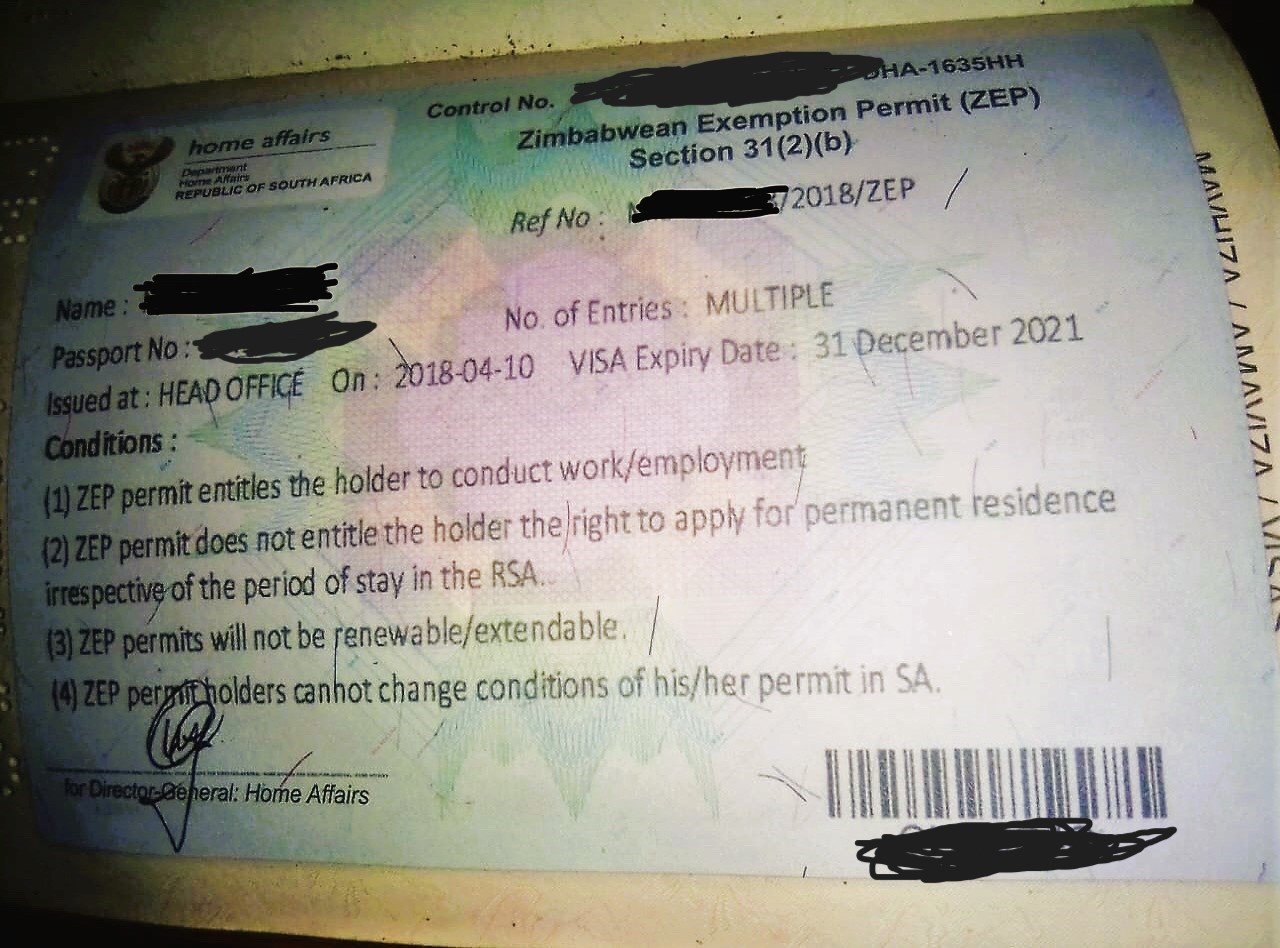Published
7 months agoon
By
Peter Smith
In the delicate balance between maintaining the integrity of immigration laws and upholding the fundamental tenets of a nation’s constitution, the recent judgment in the case of the Zimbabwe Exemption Permits (ZEP) raises thought-provoking questions. The crux of the matter revolves around the clash between the supremacy of immigration laws and regulations and the constitutional rights of individuals affected by these laws.
The Immigration Landscape:
Immigration laws are the backbone of a country’s ability to control its borders, manage population inflows, and safeguard its national interests. These laws grant governments the authority to regulate entry, stay, and exit of non-citizens. However, the exercise of this authority must be balanced against the principles enshrined in the constitution, which safeguard the rights and dignity of all individuals within a nation’s borders.
The ZEP Conundrum:
The ZEP case in South Africa serves as a microcosm of the broader debate surrounding the supremacy of immigration laws versus constitutional rights. The government’s move to cancel the ZEPs, a decision ostensibly grounded in immigration control, was met with a resounding legal challenge. The High Court’s ruling, declaring the cancellation unlawful, unconstitutional, and invalid, has profound implications for the delicate equilibrium between immigration enforcement and constitutional protections.
Supremacy of the Constitution:
The heart of the matter lies in the doctrine that the Constitution is the supreme law. It acts as the moral compass guiding the actions of the state, ensuring that even in the realm of immigration control, the rights of individuals are not trampled upon. The court’s decision sends a powerful message that immigration decisions must adhere to constitutional standards, particularly in terms of administrative justice and the right to consultation.
Promotion of Administrative Justice Act (PAJA):
The court’s acknowledgment that the decision to terminate the ZEPs was reviewable under the Promotion of Administrative Justice Act (PAJA) underscores the importance of procedural fairness even in the realm of immigration. PAJA ensures that administrative decisions are lawful, reasonable, and procedurally fair, regardless of the subject matter. This challenges the notion that immigration decisions are immune from such scrutiny.
The Crucial Role of Consultation:
The judgment highlights the critical role of consultation in decision-making processes. The failure to consult with ZEP holders, non-governmental organizations, and the public was deemed a violation of constitutional principles. This emphasizes the need for transparency and inclusivity, even when dealing with immigration matters that may traditionally be viewed as falling within the exclusive domain of the executive.
Separation of Powers:
The government’s argument that the court’s intervention violated the doctrine of separation of powers echoes a broader tension between the judiciary and the executive. However, the court’s perspective that the intervention merely upholds the rule of law emphasizes that no branch of government is immune from constitutional scrutiny.
Future Implications:
The ZEP case sets a precedent that resonates beyond the specific context of immigration law. It signals a shift towards a more nuanced understanding of the intersection between immigration control and constitutional rights. The judgment prompts a reevaluation of the extent to which immigration decisions can be shielded from constitutional review and establishes a benchmark for the treatment of affected individuals.
Conclusion:
The ZEP conundrum forces us to confront the complexities inherent in balancing the supremacy of immigration laws with the constitutional rights of individuals. It challenges us to reconsider the dichotomy between stringent border controls and the principles of justice, fairness, and consultation. As nations grapple with immigration policies, the ZEP case stands as a testament to the enduring importance of the Constitution as the guiding force that ensures the rights of all individuals, irrespective of their immigration status, are upheld and protected. The conundrum is a call for a harmonious coexistence where the integrity of immigration laws is not compromised but rather strengthened, by a commitment to constitutional principles.




Warning: Undefined variable $user_ID in /home/iniafrica/public_html/wp-content/themes/zox-news/comments.php on line 49
You must be logged in to post a comment Login